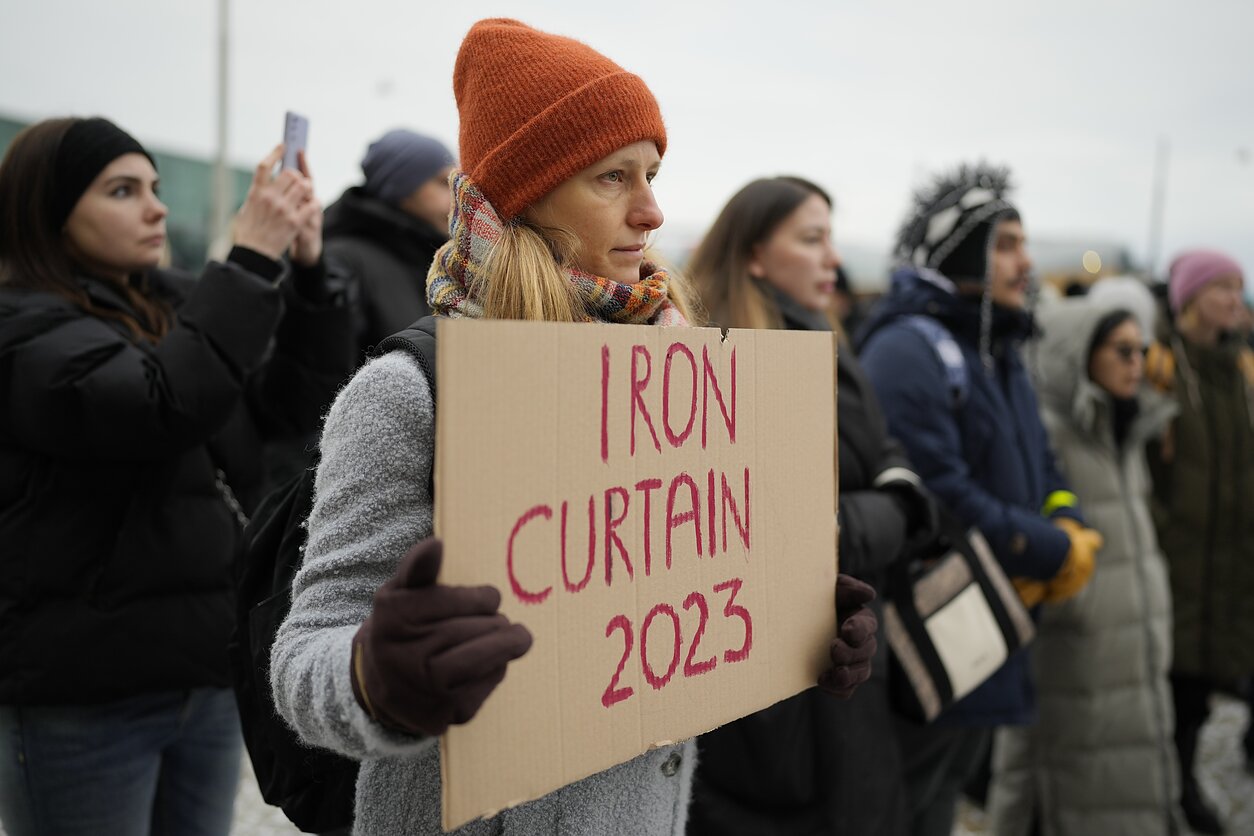The West demands more than just de-escalation of the migration crisis
 The situation has not changed
The situation has not changed

The regime has sent several signals of de-escalation to the West, using the regional and global security agenda as leverage, addressing the migration crisis and proposing a new security concept for Europe and Eurasia. However, the top priorities for the West remain the release of all political prisoners, an end to repression, and the organization of free and fair elections. Despite this, Minsk shows no readiness to compromise with either the West or civil society.
At the OSCE Ministerial Council meeting in Skopje, the Belarusian side called for the development of principles of peaceful coexistence not only in Europe but also in Eurasia. The proposed new security architecture is based on the principles of indivisible security, taking into account the concerns of all parties without exception and ultimately ensuring the safety of everyone. Belarus invites all interested parties to start urgent work on such a document in the spirit of Helsinki and San Francisco.
The beginning of December saw a significant decrease in attempts to illegally transport migrants from Belarus into neighboring EU countries, which the regime may use to claim de-escalation. Lukashenka recently expressed readiness to negotiate on this issue if the EU restores funding for relevant border projects.
However, the current state of affairs is more likely due to the reorientation of migration flows from the Polish to the Finnish direction. Before the closure of all checkpoints on the Finnish-Russian border, illegal migrants from Belarus headed to the border with Finland after unsuccessful attempts to enter the EU from Belarusian territory, where the border on the Polish side is well-fortified.
Even if this de-escalation was initiated by the Belarusian authorities, it would still be insufficient to legitimize the regime and initiate negotiations. This perspective was reiterated by the Polish Foreign Ministry. The Western countries’ stance towards Belarus can only be altered through the release of all political prisoners and the cessation of repression.
However, the recent wave of mass searches, property seizures, interrogations, and detentions related to the “Coordination Council case,” targeting emigrant political elites and their institutions, suggests the opposite. The regime’s illegal actions against opposition politicians and their associates affirm its ruthless and cruel nature. In Warsaw, these actions are seen as another step in implementing a strategy to fully suppress democracy in Belarus.
The European Union also condemns recent attacks on representatives of Belarusian democratic forces and their families, considering them another deplorable example of ongoing repression and abuse of power by Lukashenka and his inner circle.
Brussels calls on the regime to refrain from further repression and violence against the Belarusian people, demanding the immediate and unconditional release of all political prisoners. Additionally, the EU supports the holding of elections to the Coordination Council, opposing the Single Voting Day prepared by the Belarusian authorities. The EU advocates for the right of Belarusians to be represented by those they freely choose through transparent, free, and fair elections.
Democratic forces in exile attempted to involve neutral countries such as Austria and Switzerland, as well as the International Red Cross and the Swiss non-governmental organization Humanitarian Dialogue, in the release of political prisoners. However, the regime remains unyielding, asserting that there are no political prisoners in Belarus; all individuals detained are deemed criminals, and there will be no release.
Subscribe to our newsletter




Situation in Belarus
Constitutional referendum: main consequences


 Video
Video
How to count the political prisoners: are the new criteria needed?


 Video
Video
Paternalism In Decline, Belarusian Euroscepticism, And The Influence Of Russia


 Video
Video












